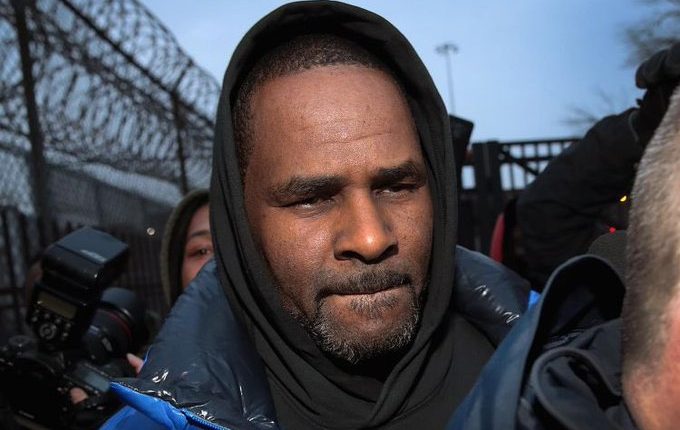- R. Kelly Rushed to Hospital After Overdose: Kelly was hospitalized after allegedly receiving a near-lethal overdose of medication while in solitary confinement at a federal prison.
- The singer suffers from dangerous blood clots in his legs and lungs, with surgery recommended but reportedly denied by prison officials.
- Kelly’s legal team alleges a conspiracy involving prison staff to harm or kill him, prompting emergency motions for his release or house arrest.
- Assistant U.S. Attorney claims solitary confinement is a protective measure, while the Bureau of Prisons has not publicly commented on the case.
- The case highlights broader concerns about prisoner safety, medical care, and the handling of high-profile inmates within the federal prison system.
Kelly, the disgraced R&B singer serving a lengthy federal sentence for racketeering and sex trafficking, was rushed to a North Carolina hospital after allegedly receiving a near-lethal overdose of medication while in solitary confinement, according to his legal team. This alarming incident has intensified concerns about his safety behind bars and prompted urgent legal motions seeking his release or transfer to house arrest due to threats against his life.

The Overdose Incident: What Happened?
According to court filings by R. Kelly’s lawyer, Beau Brindley, the singer was placed in solitary confinement at the Federal Correctional Institute in Butner, North Carolina, earlier in June 2025. Kelly, who takes medication for anxiety and sleep, reportedly showed his prescribed medications to prison staff upon entering solitary. However, on June 12, prison personnel allegedly administered an overdose of his medication, significantly exceeding safe dosages. The next morning, Kelly experienced dizziness, fainting, and visual disturbances before losing consciousness. He was found on the floor of his cell and subsequently taken to Duke University Hospital for emergency treatment.
Further medical examination revealed that Kelly was suffering from blood clots in both legs and his lungs, conditions that require immediate surgical intervention. Despite doctors recommending a week-long hospitalization and surgery, prison officials reportedly removed Kelly from the hospital against medical advice, denying him necessary care. His lawyers warn that untreated blood clots pose a life-threatening risk.
Legal Motions and Allegations of a Murder Plot
In the wake of this incident, Kelly’s legal team filed a third supplement to an emergency motion seeking his release from prison, citing the overdose as evidence of deliberate harm by prison officials. They allege a conspiracy involving Bureau of Prisons staff who are either directly or indirectly attempting to kill Kelly to cover up crimes related to his case investigation. The motion also claims that the overdose followed shortly after Kelly publicly exposed an alleged assassination plot orchestrated by prison officials to have another inmate kill him.
Kelly’s attorneys, including Beau Brindley and Nicole Blank Becker, are pushing for a temporary furlough or house arrest, arguing that Kelly’s life is in imminent danger within the prison system. They highlight that Kelly was placed in solitary confinement as a punitive measure after filing motions for his release, which they say further jeopardizes his safety.
Prison Officials’ Response and Court Filings
While Kelly’s legal team paints a grim picture, Assistant U.S. Attorney Jason Julien stated in a court filing that placing Kelly in solitary confinement was intended as a protective measure by prison officials. Julien argued that the confinement was to safeguard Kelly from threats posed by other inmates, not to punish him.
The Bureau of Prisons has declined to comment on the specific case, citing privacy, safety, and security protocols. Duke University Hospital, where Kelly was treated, also deferred comments to the Bureau of Prisons.
R. Kelly collapsed in his cell after receiving overdose of medication from prison staff while in solitary
On June 13th Kelly fainted, suffered from dizziness & vision loss. He was rushed to Duke University Hospital, where doctors determined he received a lifethreatening overdose pic.twitter.com/WFrhBzRoze
— HBMtv (@HBM__tv) June 17, 2025
Health and Legal Implications
The alleged overdose and denial of critical medical treatment raise serious concerns about the adequacy of healthcare and safety within federal prisons. Blood clots, especially in the lungs, can be fatal without timely surgical intervention. Kelly’s lawyers emphasize that the Bureau of Prisons’ refusal to allow surgery places his life at significant risk. The situation underscores the urgent need for court intervention to ensure Kelly’s safety and access to proper medical care.
Also Read | Savannah Chrisley Denies Rumors That Mom Julie Faked Breast Cancer to Avoid Court








